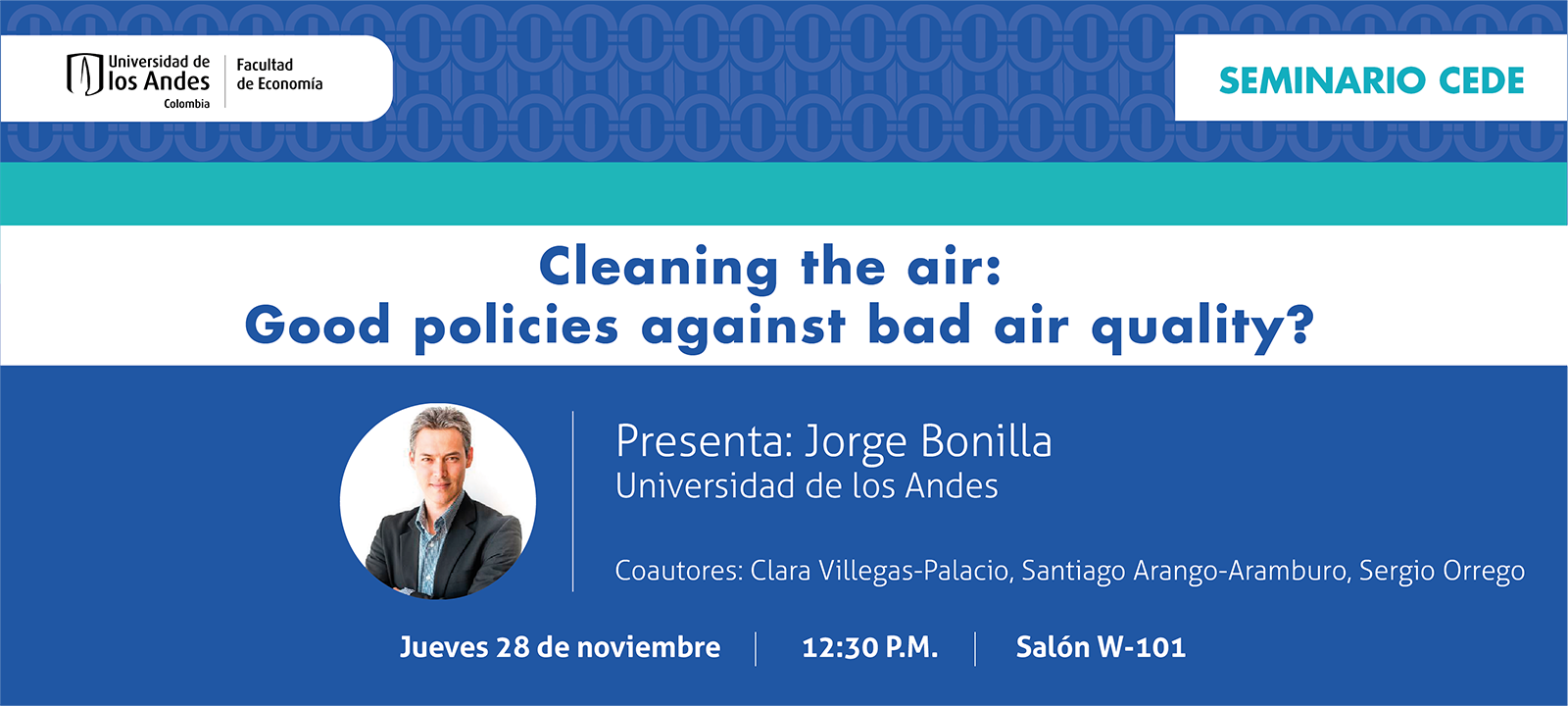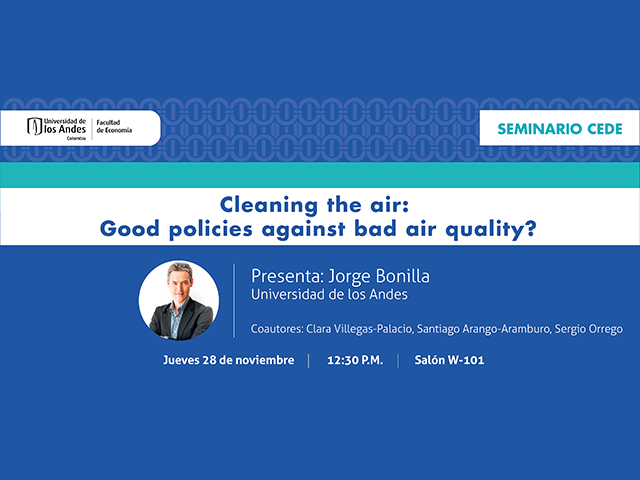Seminario CEDE - Jorge Bonilla

Short-term exposure to air pollution increases the risk of respiratory diseases. This risk is higher during critical air quality events when episodes last for several days and are harmful to the most vulnerable groups. A common strategy in Latin America is temporarily adjusting transport policies to reduce emissions and the impact on people's health. Medellín, Colombia's second-largest city, and the Aburrá Valley Metropolitan Area have been implementing driving restrictions since 2017, which, unlike other cities, not only banned cars but also restricted the circulation of motorcycles and trucks. Restrictions that quickly became stricter for old vehicles. Using a two-way-fixed effects model, we empirically evaluate the effectiveness of the implemented plan between 2017 and 2019 on pollutant concentrations and examine the impact on vehicle trips, noise, and possible changes in regular on-road tests of vehicle environmental performance. Our results show that the implemented plan has reduced air pollution by 2%-24% for several pollutants. The red alerts, introduced with the strictest bans, showed the largest reduction. Particulate matter showed the most significant improvement in air quality. In general, reductions in air pollutant concentrations tend to be greater when restrictions apply to trucks or older vehicles and when bans cover more license plates. Vehicle trips and noise also declined, and there is some evidence of an increase in on-road vehicle testing. These findings suggest that introducing differentiated restrictions focalizing the most stringent bans on the most polluting vehicles is an effective policy to reduce air pollution during short-term episodes of poor air quality.

